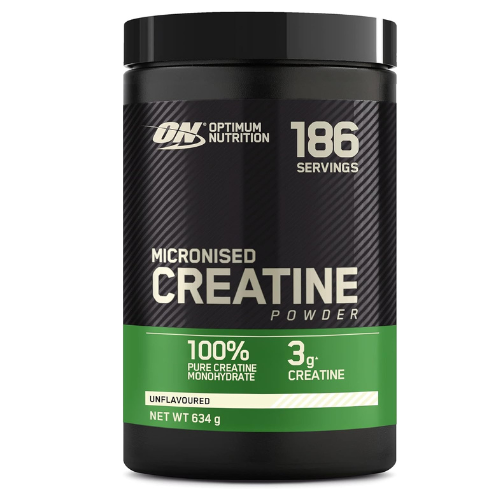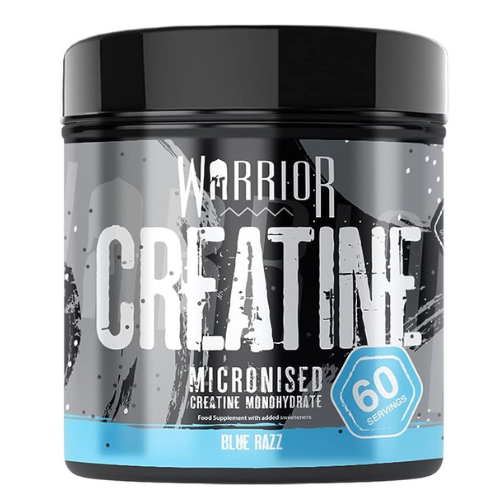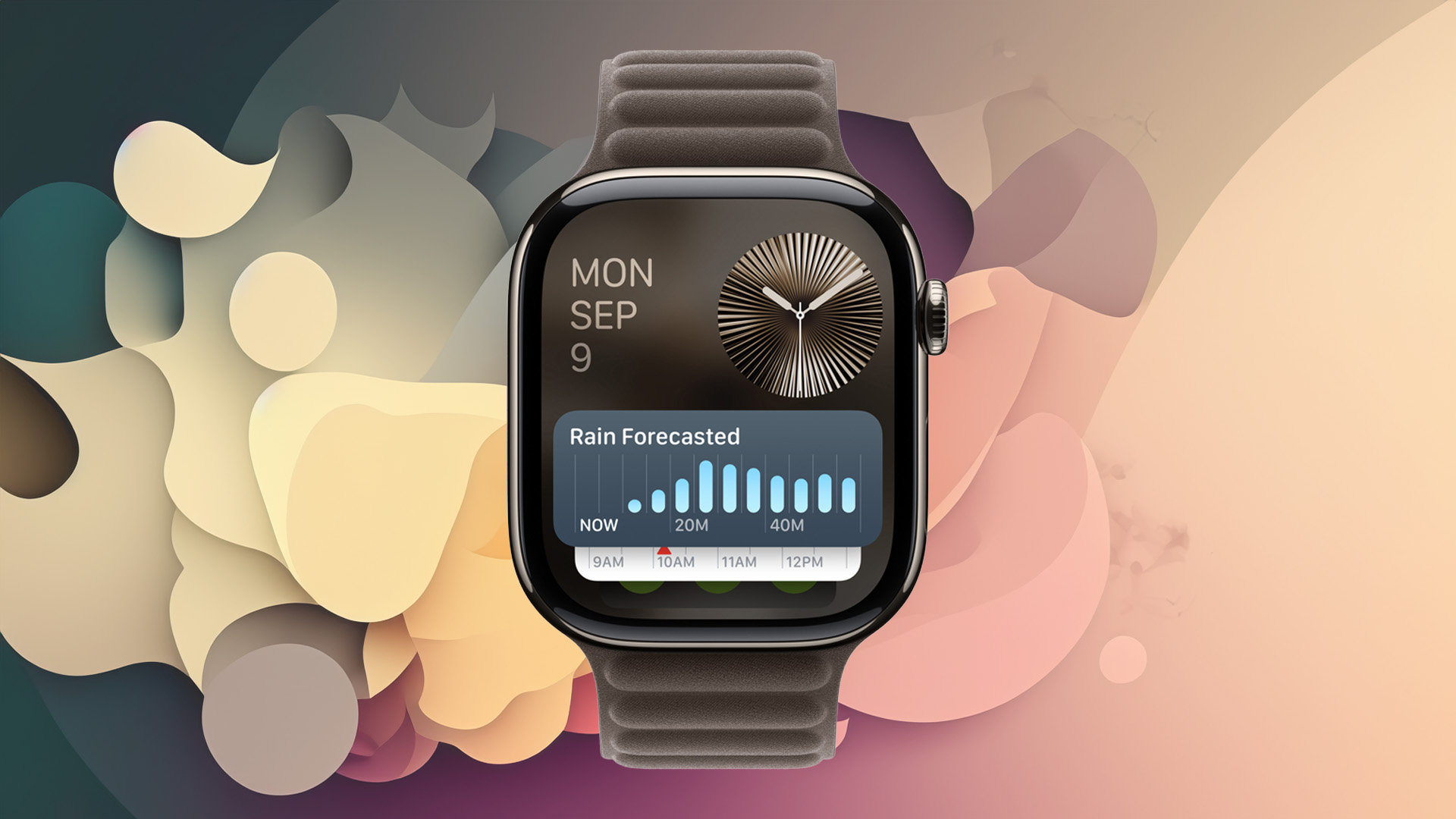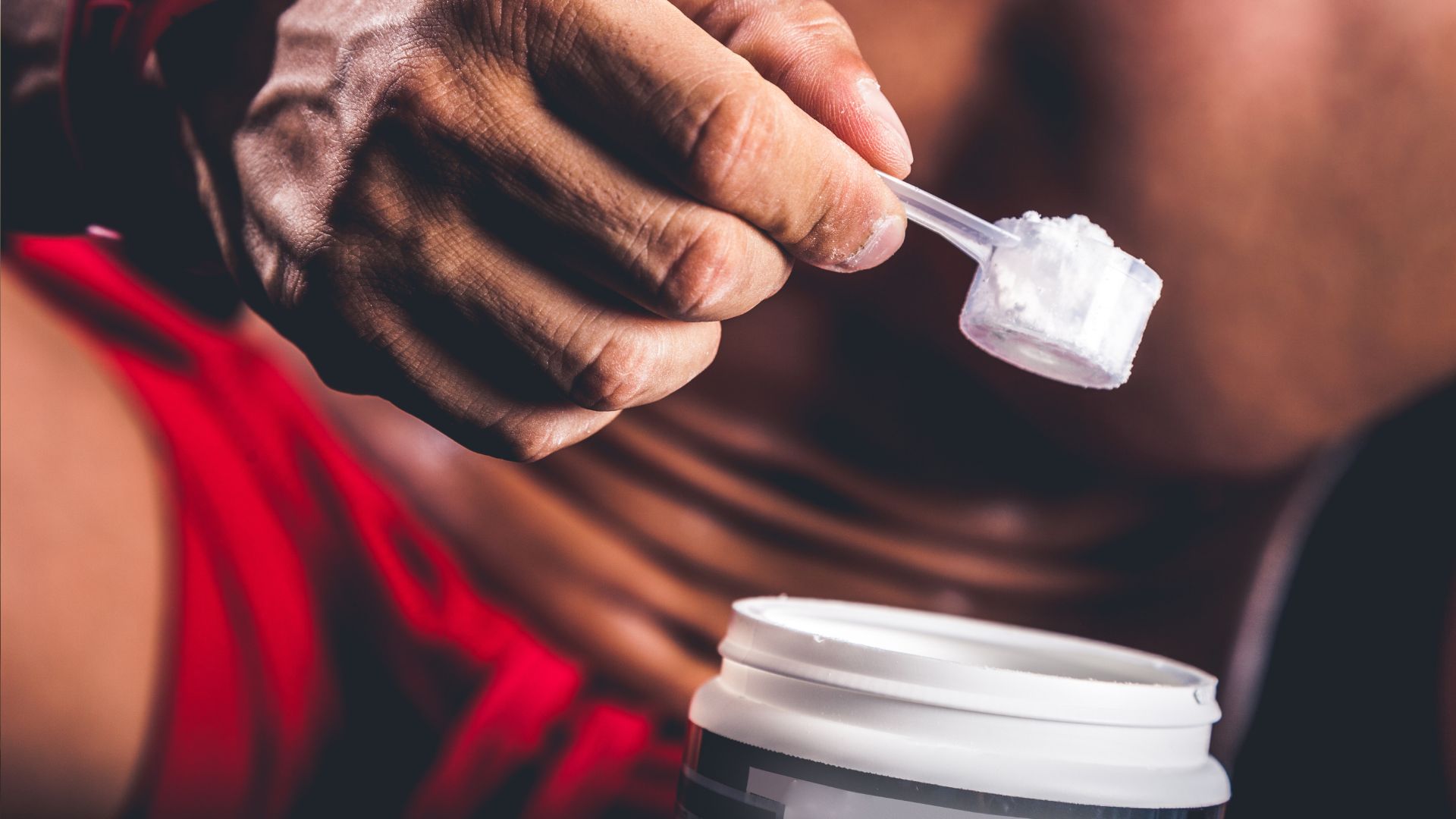

The sport supplement scene is a bit of a minefield – there’s BCCAs, EAAs, Glutamine, L-carnitine – but if there’s one supplement almost all fitness enthusiasts are taking, it’s creatine (legally speaking).
The International Society of Sports Nutrition says it’s one of the most popular performance enhancing supplements for athletes and of all the sport supplements out there it’s the only one that has studies backing its efficacy. It all sounds pretty positive, right? So, is it worth adding into your daily routine? Our guide below tells you everything you need to know.
What is creatine?
Creatine is actually naturally produced by the human body, where it’s mostly stored in the muscles and some in the brain. It’s also found naturally in foods, such as meat and fish, and our body uses it for energy.
“Creatine increases your stores of phosphocreatine, a form of energy which is in the body’s cells,” says Alex Petitt-Ward, a personal trainer and online coach. “It helps your body produce more ATP (adenosine triphosphate), which is your body’s high energy system involved in short bursts of activity such as sprinting and lifting.” The more energy we have, the less rest we need which means we can go the extra mile with our training.
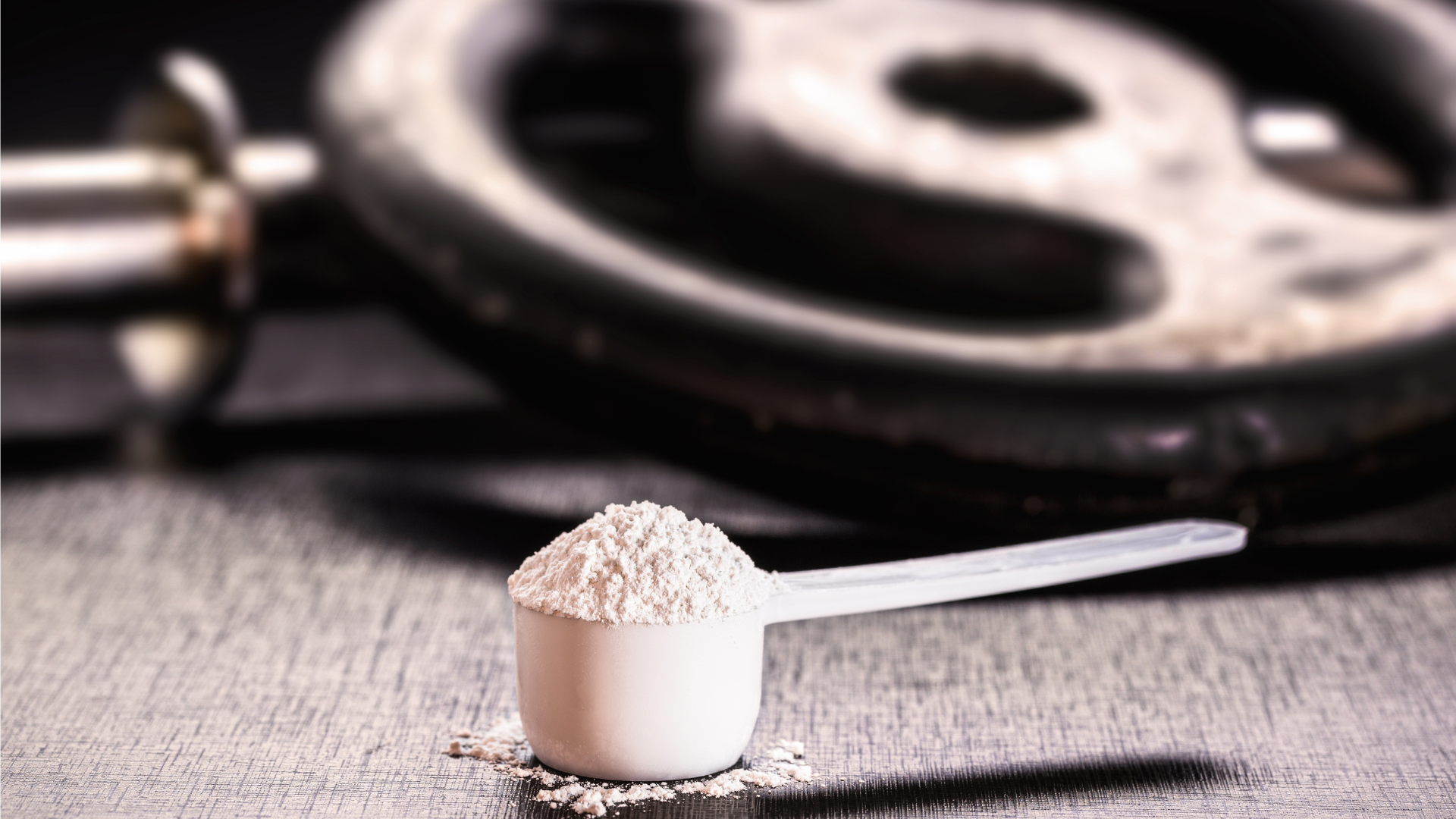
Benefits of creatine
Studies have shown that creatine can help enhance muscle mass and strength, due to its enhancement on exercise performance. Alex explains because our body will have more ATP available (our quick energy system) it means our muscles won't fatigue as quickly and can therefore work harder. It can also help post-exercise too, as creatine's also been shown to improve recovery and injury prevention.
Although, it’s not just avid gym-goers and athletes who can benefit from taking the supplement, as new studies have shown creatine can even improve cognitive function and boost short term memory. While a 2012 study revealed it can support those with depression. The eight week study with 52 women found that those who supplement with 5g of creatine a day alongside their antidepressant saw significant improvements in their HAM-D scores (a depression assessment scale).
Is there a best time to take creatine?
There’s no need to try and pinpoint an exact time to take your creatine, as Alex confirms there’s no specific benefit for when you take it, as long as you take it daily. “Some studies have shown benefits of pre exercise but at present not enough evidence exists to confirm this,” he says.
Sign up to the T3 newsletter for smarter living straight to your inbox
Get all the latest news, reviews, deals and buying guides on gorgeous tech, home and active products from the T3 experts
In terms of how often you should take it, the standard dosage recommendation is 3-5g of creatine monohydrate a day. The International Society of Sports Nutrition says the most effective way to increase your creatine stores is by taking 5g of creatine monohydrate four times a day, for five to seven days – known as a ‘loading phase’. After this, it’s the standard daily dose. A loading phase isn't necessary, Alex says you can stick to the 5g a day, but that it will take longer to get into the cells.

Who should take creatine?
"Anyone who is performing any form of sprint or power based exercise should take creatine (HIIT, strength training, track training to name a few)," says Alex. "But now there is evidence to say that everyone should actually take it due to cognitive benefits of it as well." Creatine is consumed best with carbs or carbs and protein. You could add it to your protein shake, pre-workout meals, or even your hot drink (as it doesn't dissolve well in water).
The side effects
'Does creatine make you gain weight?' is one of the most highly searched questions surrounding the supplement. Creatine does increase water retention and, as a result, can lead to weight gain. However, we're not talking masses of weight here (it's not a weight gainer), more like 2-4lbs a week. Plus, creatine contains zero calories, so it won't contribute to fat gain. If anything, your muscles will look and feel fuller. Also, don't forget creatine helps you build muscle and muscle is heavy, which means the numbers on the scales go up.
Creatine : Our top picks
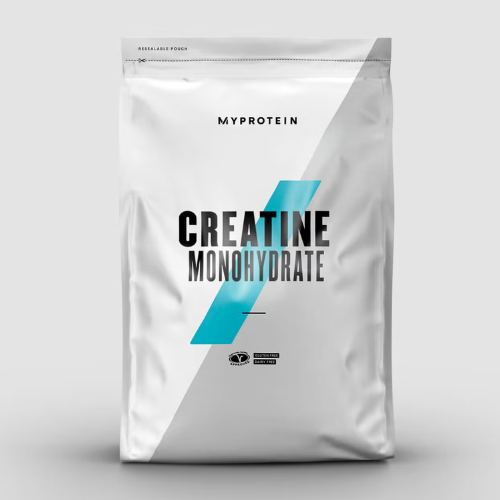
When it comes to affordable supplements you can never go wrong with MyProtein. This bag contains around 83 servings of creatine (3g serving) and it's unflavoured, so you can add it into pretty much anything.

Bryony’s T3’s official ‘gym-bunny’ and Active Staff Writer, covering all things fitness. She recently completed her Level 3 PT qualification with the PFCA to bring a deeper understanding of training techniques, fitness trends, and wellness advice to her writing. In her spare time, you will find her in her natural habitat - the gym - where her style of training is a hybrid of bodybuilding and powerlifting. Bryony loves writing about accessible workouts, nutrition and testing innovative fitness products that help you reach your fitness goals and take your training to the next level.
